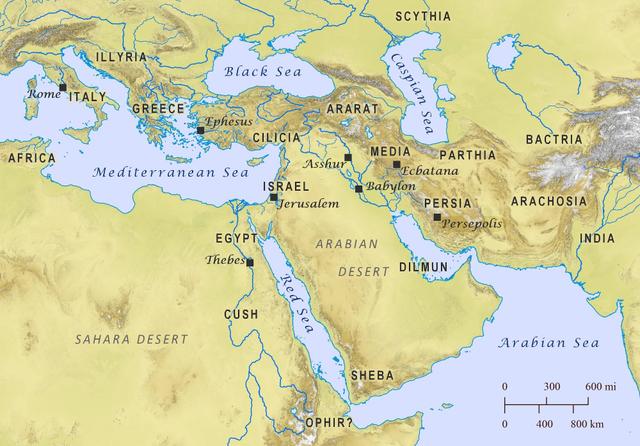Jude praises God, for it is God who can keep us from falling away from His fellowship, so that we can stand before Him one day without blame and with deep happiness, rather than shame. It is God who has saved us, through His Son Jesus. He deserves all glory forever, He is sovereign over all things throughout all of time. This we believe is so.
The concluding two verses of the epistle of Jude furnish a doxology, a formulation of praise towards God who is the object of the faith for which Jude exhorts the letter’s recipients to contend.
Verse 24 extols God’s ability to preserve the believers: Now to Him who is able to keep you from stumbling, and to make you stand in the presence of His glory blameless with great joy (v 24).
Jude just warned believers who try to shore up the faith of those who stumbled to do so “with fear” (Jude 1:23) lest they themselves stumble. But the thing they can lean on is not their own strength. Rather it is God, who is able to keep them from stumbling. This is a great comfort, that
this great endeavor of contending for the faith is not something we do alone. Rather it is something we do in the power of God.
When we walk in His power, we can look forward to a glorious result: stand in the presence of His glory blameless with great joy. Every believer will be judged for the deeds they do while living on earth (2 Corinthians 5:10). There will be great joy associated with hearing “well done” (Matthew 25:21) and seeing that our deeds were “gold, silver, precious stones” that are refined and preserved in the fire of God’s judgment (1 Corinthians 3:12-13). We do not want to be of those who miss out on this great joy.
Jude ends with a dedication: to the only God our Savior, through Jesus Christ our Lord, be glory, majesty, dominion, and authority, before all time and now and forever. Amen (v 25).
This benediction elevates God as our Savior. It is God who has redeemed us from the penalty of sin, sin which separates us from relationship with God. God reconciled us to Himself through Jesus Christ our Lord. Every sin was nailed to the cross with Jesus (Colossians 2:14). Jesus bore the sins of the world for us, that we might become the righteousness of God in Him (2 Corinthians 5:21).
Jude ends in recognition that it is God and Jesus Christ that deserve all glory, majesty, dominion, and authority, before all time and now and forever. The bedrock of our faith is the belief that God is over all, commands all, and has our best interest in mind. It is not that this is something new. Rather it has been this way before all time. The eternally existent “I AM” is outside of time, and existed before time.
Not only that, God is over all things now and will be forever. Satan’s temptation of both Eve and Jesus was for them to rely on their own strength and knowledge apart from dependence on their Creator. Jude desires the opposite, and asserts that in relying upon God’s sovereign care over creation, we as humans are actually seeking our greatest joy (Jude 1:24).
For further insight on this topic, the commentaries on Hebrews 2 and Psalm 8 explore how God has appointed humans to share with Jesus in having dominion over the earth, which restores humanity to its original design, to reign over the earth in harmony with God, creation, and one another.
Jude ends with a simple Amen. In our modern era, we tend to think of “amen” as “the prayer is ended.” Amen translates the Greek word “amen,” so “amen” is a transliteration. It means “so be it” or “it is surely true.” By adding “amen” to his comment about going to Jesus’s heavenly kingdom, Jude is likely saying “It is true, and I look forward to it.” Interestingly, the Hebrew word for “amen” comes from the Hebrew root “aman” which means “believe,” “faith,” or “trust.” So in ancient Hebrew society when Amen was said at the end, it seems to have meant “I have faith/trust in what was spoken.”
So this ending transcends Jewish and Gentile culture, and is a fitting end to Jude’s admonition for believers to contend for the faith, trusting in God to provide the strength, and trusting that His ways are for our best.
Biblical Text
24 Now to Him who is able to keep you from stumbling, and to make you stand in the presence of His glory blameless with great joy, 25 to the only God our Savior, through Jesus Christ our Lord, be glory, majesty, dominion and authority, before all time and now and forever. Amen.
Check out our other commentaries:
-
Amos 1:13–15 meaning
The LORD pronounces judgment on the inhabitants of Ammon because they ripped open pregnant women in Gilead to enlarge their territory....... -
Matthew 15:1-9 meaning
The Pharisees return to attack Jesus with a loaded question. Jesus flips the question on its head and demonstrates through an example and a prophecy...... -
Hebrews 11:13-16 meaning
Those who remain faithful regard themselves as strangers on this earth, because they know there is a better heavenly country. They live by faith, believing...... -
Genesis 12:18-20 meaning
Pharaoh realizes that Sarai is Abrams wife and not his sister. He tells them to leave. ...... -
Ecclesiastes 8:1-4 meaning
Since God is our ultimate authority, the wise man learns how to serve and submit to the authorities over him.......



